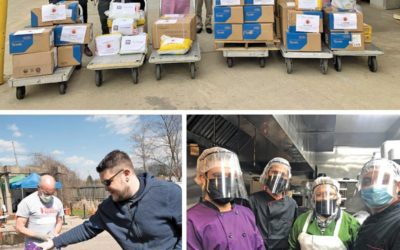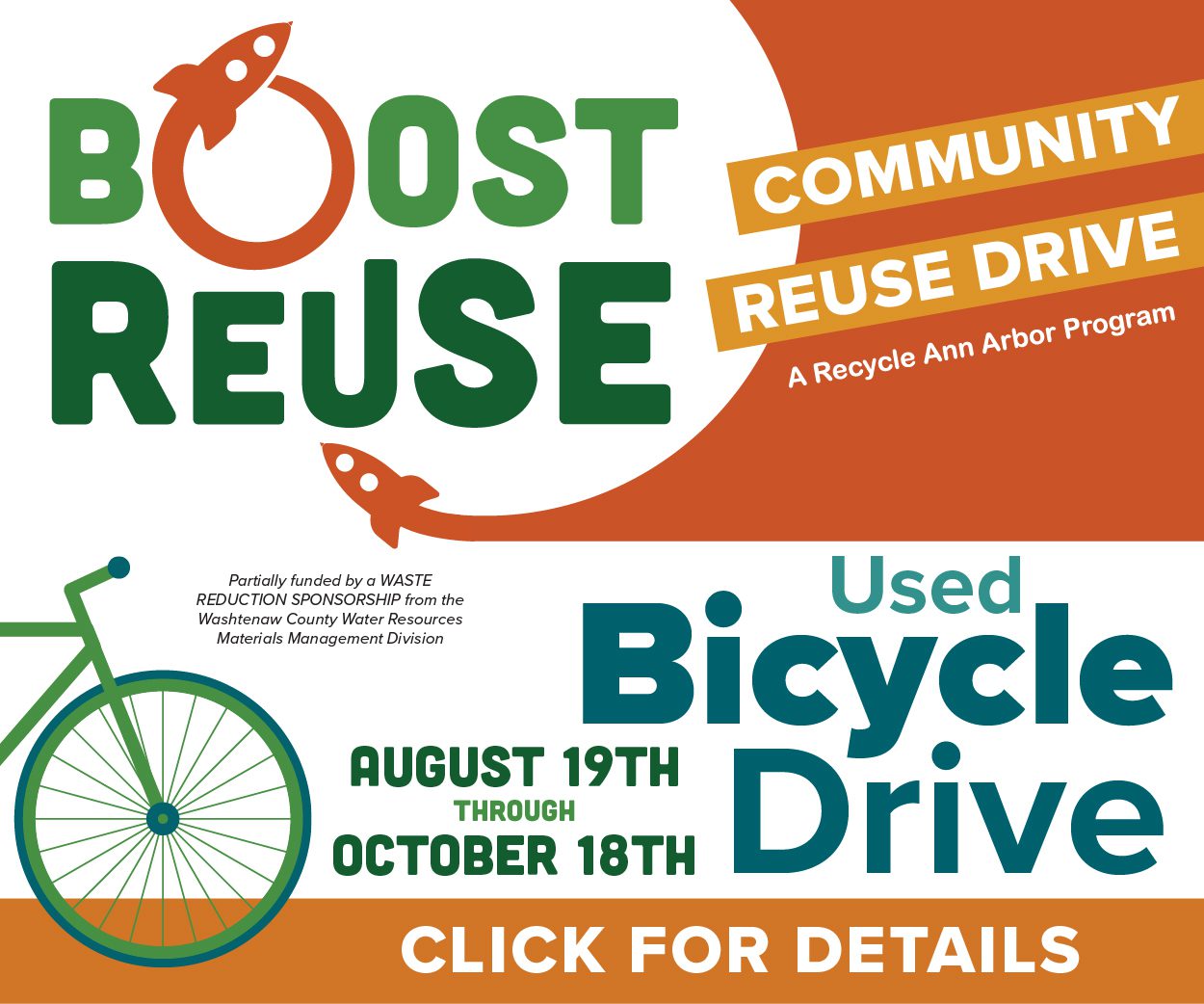
I’ve often seen people gathered around the bus stop in the front, and when I was younger, a few friends and I conducted a toiletry drive for the residents. But like most people, I didn’t know what goes on inside.
Homelessness is something many of us see for a second and feel a sudden sense of unease, until we turn to a friend and continue our conversation, or keep driving until something else catches our attention.
To me, it happens most often when I pass the Delonis Center on W. Huron. What started out as a volunteer project in 1982, with twenty-five individuals sleeping on mats, is now a multifaceted homeless shelter with seventy-plus beds, a community kitchen, and a nonresidential program providing showers, laundry, storage, and case managers.
Built by the county with contributions from the city and private donors, it’s operated by the Shelter Association of Washtenaw County. Executive director Dan Kelly says that in the last fiscal year, it served about 1,200 individuals.
I’ve often seen people gathered around the bus stop in the front, and when I was younger, a few friends and I conducted a toiletry drive for the residents. But like most people, I didn’t know what goes on inside. And two years into a global pandemic, I wondered how Covid-19 had impacted the homeless community and life in a shelter.
—
My journey began in March in Delonis’s community kitchen, where I met Amy Diehl. After five years of volunteering three days a week at Delonis, Amy became one of two community kitchen coordinators five years ago. She deflects questions about herself, preferring to talk about how Food Gatherers, the food rescue program, serves as the motor for Delonis’s kitchen and staff.
The kitchen is a world of stainless steel and people working with purpose. A man with a ponytail and a woman in a purple hairnet throw what looks like a ton of shrimp into a vat of water with peas. In the corner of the kitchen, a girl puts celery through a grinder. As I put on my apron, Amy gives me my first task of the day—making meals for those who can’t come down to the lunchroom. I put a portion of veggie lasagna, two pieces of bread, two pats of butter, a handful of cooked cauliflower, and a container of peaches into a foam box—and then repeat this seven times. I label the boxes and put them on a cart which holds a single bottle of Ensure. When I inquire about it, Amy tells me “a lot of these people have bad teeth” and need liquid nutrition.
Nearby at the front desk, two stressed receptionists try to answer questions from a stream of people. Some enter in good spirits, talking or singing. Others bring restlessness or anger, and some come in with heads hanging low. I sit next to a man with a gray beard and a walker. He clutches his bags while he sleeps.
There are two receptionists—Dawn Gemler and Renae (she didn’t volunteer her last name). Dawn tells me she started as an intern in September 2019 and now works as both a case manager and receptionist. Covid emerged at the end of her case manager internship, when the county spent more than $700,000 moving some residents out to motel rooms to reduce the risk of infection.
Renae explains some people choose to stay on the streets because “living in a shelter has a lot of rules and regulations … We tell them when they can leave and when to wake up. We have a certain time that we serve meals,” and even have rules about “little things like playing their music out loud.” For those people, the shutdown during the pandemic’s first months presented new obstacles.
“How do you go to the bathroom when the Starbucks that you normally walk to is closed down? Not only were people not able to go in to use the restroom, or maybe charge their phone, or you know, just have a little bit of refuge from the elements. … They also were not able to … receive the same generosity from business owners who might be providing them a meal out back.
“Really, that’s why people who had been living outside for so long were like, ‘All right, I’ll take your offer to stay in a hotel for this time.’”
—
On my second day at the Delonis kitchen, Amy takes a cleaver to a colossal beef brisket. “This one’s probably from Costco,” she says. Costco is one of Food Gatherers’ biggest meat donors, along with Sam’s Club, Kroger, Meijer, Plum Market, Whole Foods, and a few others. The stores donate three to six times a week, some more than others.
I’m scooping stuffing when a lady slides next to me. Tina Fields has been volunteering almost every Saturday for the past five years. “After my divorce, I started coming in,” she says. “It honestly saved my life.”
Tina’s here with her stepdaughter, who often accompanies her. She smiles as the smell of chocolate chip cookies wafts through the kitchen.
“I don’t know if you’ve ever seen that show Chopped?” Amy asks. “It’s kind of like that, when the volunteers walk in, they have no idea what we have available.” Yet “they’ll put together this wonderful meal in, like, two hours, which is incredible … we don’t tend to have anything planned too much ahead of time.”
“We encourage everyone to come to lunch and dinner here to break down barriers and just have a conversation,” Kelly tells me.
“Delonis’s mission is to end homelessness one person at a time. … The person in front of you is the most important at that time.
“My personal vision is to see Delonis as a community center.”
Due to the sheer number of people it serves, the shelter is a high-risk area for infection—and Kelly points out that many guests have chronic conditions that make them more vulnerable. When Covid hit, they implemented a “symptom-based strategy,” combining health screenings at the door, rapid and PCR tests, and isolation of anyone infected.
It worked so well that they had only nineteen cases from March 2020 through November 2021. But then the more-contagious Omicron variant caused “a massive outbreak,” Kelly says, with about 150 cases in December and January.
The county was “incredibly supportive,” turning its Learning Resource Center into an isolation unit, and the shelter weathered the storm with the help of Packard Health and the county public health department. Since then they’ve only seen scattered cases—and thanks to the vaccines and the new drug Paxlovid, no one has gotten seriously ill.
—
It’s dinner time at Delonis.
People line up at the door to the kitchen to pick up their meal. A volunteer passes out a Styrofoam box to each, with a handheld side dish and a water bottle.
“Some of them get mad when we tell them to wear masks,” Amy tells me.
It hasn’t always been this way. Delonis used to have one salt and one pepper shaker, real plates, and real dishes. People could gather around; volunteers and people eating could talk freely. People could scoop their own food and get seconds. People would gather in the dining room before dinner and enjoy coffee. For many, mealtime was “the only time of day where they had some choice,” contends Amy. (In an October call, Kelly reports that in-person dining resumed after the Omicron wave passed.)
On the other side of the wall, volunteers scoop as fast as they can in order to keep up with the growing number of people coming to the window. Tonight’s meal is carrots, rice with beef, Caesar salad, a piece of individually packed pineapple, a yogurt, and a cheese-and-berries Danish.
A young volunteer who introduces himself as Gazzi is scooping the beef and rice mixture into boxes. He tells me that he started coming here because he liked it better than volunteering at Food Gatherers’ warehouse.
In the lunchroom, I sit down at the table closest to the door. I don’t feel like a complete outsider thanks to a small, fiery lady. Kathy, a Delonis resident, goes out of her way to make others feel good. She makes sure the people at the table have what they need, simply checks in, or makes them laugh. Her kindness and positive attitude are remarkable, considering the alarming amount of misfortune that’s come her way throughout the past year.
Kathy tells me that she followed her daughters when they graduated from college in Mississippi and decided to move back to Ann Arbor. Having been a general manager and in the service industry for a while, Kathy picked up a job at Zingerman’s and found a roommate.
“I was working sixteen days straight with one day off.”
On her day off, Kathy slept in. She gave her roommate her share of the rent—in cash—and trusted him to make the payment. But slowly, she started noticing abnormal behavior. She’d see him sporting a new pair of tennis shoes, a new cell phone, a new laptop.
“This guy didn’t have a pot to piss in when I moved in. I was like, ‘How can you afford all this stuff?’”
One day she went to the leasing office and asked if he had been paying his rent. He hadn’t, and she was evicted.
She was sitting outside in the cold when a restaurant owner stumbled upon her. He walked into a hotel, paid for her room at the desk, and told her, “Get some sleep.”
This random act of generosity was able to hold her for a few days. After a few more nights sleeping hidden behind a chair in a public building, a man she met on the street told her about Delonis. She took the bus there.
“And then I had my bag stolen from here in the cafeteria—it had my license, Social Security card, birth certificate, cell phone, debit card, everything … money.”
When things couldn’t get any worse, they did. Some church ladies took her back to the apartment to get her things, but they had been put outside and were gone.
Regardless, she remains optimistic. “I’ve been on this planet for a minute. And there is nothing that keeps this chick down.”
At the lunch table, I sit across from Kathy. Everyone opens up their boxes to see what’s on the menu. “I prefer iceberg lettuce,” says Shay, who’s sitting across from me. Kathy responds, “I like spinach leaves or arugula.”
Next to me sits a man in a wheelchair with a bandage on his head. He doesn’t have teeth. He slowly takes his fork and brings his food to his mouth. On my other side, a man shakes his leg—“needs salt, they never have salt.” He tells me his name is Chris.
I go to the back and ask Amy if they have any salt packets, but they don’t. Chris moves his fork around in his salad and comments on the lack of dressing. As the person who had prepped the salad, I admit the uneven distribution was my oversight.
—
“I fuckin’ swear dawg, on my dead dad.”
Some people stop and look; others continue as if they didn’t hear anything.
“They could film a documentary about this place, I swear,” says a young man at the end of the table. Bryan has been at Delonis for only a few weeks but has been on the streets since he was eighteen. He says he was visiting a friend up north when his parents sent him a text.
“See this long text … I skim through it, and it’s just basically, like, ‘You gotta go, you gotta go, you’re done here.’ I had like no money saved—like $300.” He doesn’t have a phone or a support structure of any kind.
“If you’re lucky, you might see a fight tonight—dinner and a show,” Chris says cynically. Kathy tells me one broke out between two men just a few days ago.
She says there’s a lot of crime at the center. When her bag got stolen, she left a bottle of water on the table, and someone put Suboxone in it. It’s a medication used to control opioid cravings.
“I ended up on the floor. I had to have somebody help me up to the second floor. At first I thought I was having a heart attack … it was like it didn’t seem real,” she tells me.
Rochelle chimes in. “Like my phone got stolen.” She says she asked the administration to replace it but was told, “Somebody steals, it’s not our problem.”
Kelly was shocked to hear that, and sorry it happened. “We take any issues of theft or violence very seriously,” he says. “We know people are coming to us at an incredibly challenging time in their lives, so our goal is to create a safe, welcoming environment.”
Guests are encouraged to report problems, and if anything is stolen, “we try to get items recouped. We have a group that has phones, so someone can get a new phone that way.”
—
Sometimes there’s an assumption that the homeless should take what they can get: a few dollars, a free meal, any form of shelter. But some homeless people want freedom. Some homeless people want salt on their food. Some homeless people just want to be heard.
The lunchroom begins clearing out, and Delonis gets ready for bed.
“They took the garbage can away,” Rochelle says.
“Of course they did,” Kathy follows up.
They hadn’t. I point at the garbage can.
Chairs are being stacked. Kathy tells a nervous-looking woman that she will bring her a sleeping mask, and the lady thanks her.
Back in the kitchen, Amy’s the only person left. She hangs up her apron and locks up the office.



